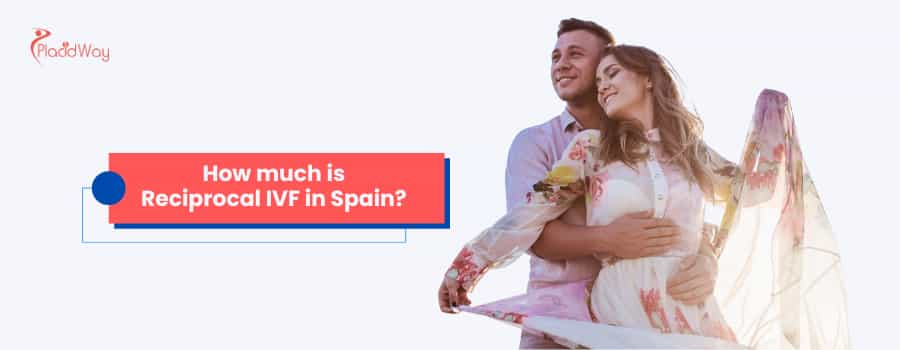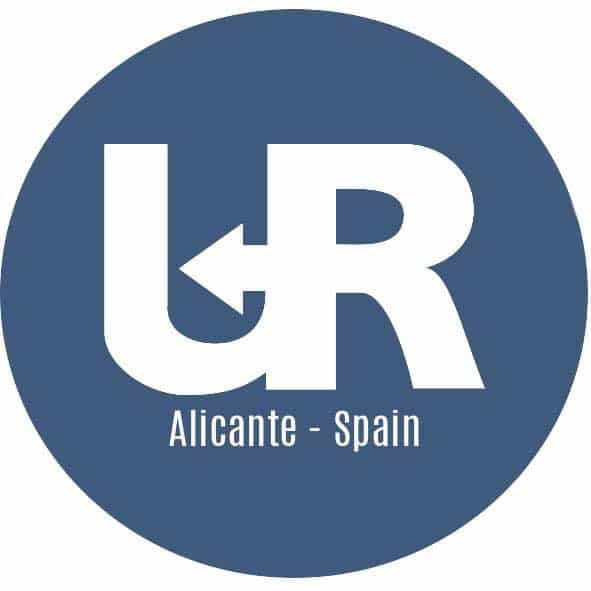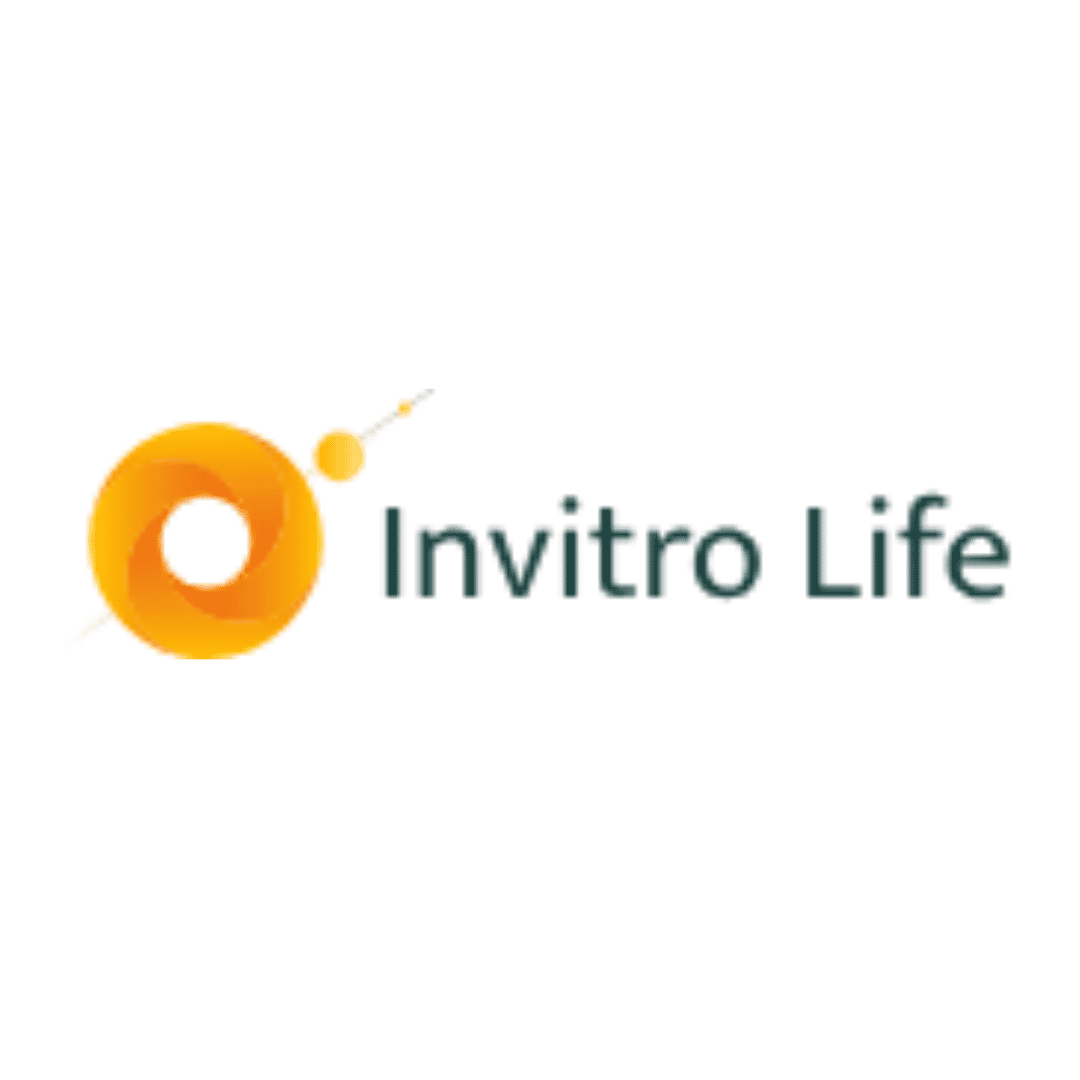A Guide to Reciprocal IVF Cost in Spain

Reciprocal IVF, also known as ROPA (Reception of Oocytes from Partner), is a popular and beautiful way for same-sex female couples to share in the journey of creating their family. Spain has become a leading destination for this treatment due to its advanced medical care, inclusive laws, and transparent pricing. If you're considering this path, your main question is likely about the cost. On average, reciprocal IVF in Spain costs between €5,000 and €7,000. This price can fluctuate based on the clinic, the specific services included, and your individual medical needs. In this comprehensive guide, we'll break down everything you need to know about the cost of reciprocal IVF in Spain, helping you plan your journey to parenthood with confidence.
What is the Average Cost of Reciprocal IVF in Spain?
"The average cost of a reciprocal IVF (ROPA) cycle in Spain typically ranges from €5,000 to €7,000."
This price generally covers the core procedures for both partners. For the partner providing the eggs (the genetic mother), this includes ovarian stimulation, monitoring, and egg retrieval. For the partner carrying the pregnancy (the gestational mother), it includes the preparation of her uterus, the embryo transfer, and post-transfer monitoring. It’s important to remember that this is a baseline figure, and the final cost can vary between different fertility clinics and cities within Spain.
When comparing clinics, always ask for a detailed cost breakdown to understand what is included in their quoted price. Some clinics may offer all-inclusive packages, while others might have a base price with additional costs for certain services. Understanding the full scope of the costs upfront will help you avoid any surprises and budget accordingly for your reciprocal IVF in Spain.
What is Typically Included in a Reciprocal IVF Package in Spain?
"A standard reciprocal IVF package in Spain usually includes the initial consultations, medical monitoring for both partners, egg retrieval, fertilization with donor sperm, embryo culture, and the embryo transfer."
Here's a more detailed look at what you can generally expect to be included in the price of reciprocal IVF in Spain:
-
Initial Consultation: Your first meeting with the fertility specialist to discuss your medical history and create a personalized treatment plan.
-
Medical Monitoring: Ultrasounds and blood tests for both partners to track the progress of the ovarian stimulation and the preparation of the uterine lining.
-
Egg Retrieval: The medical procedure to collect the eggs from the genetic mother.
-
Sperm Donation: The cost of the anonymous sperm donor is often included.
-
IVF Laboratory Procedures: This covers the fertilization of the eggs with the donor sperm and the culture of the resulting embryos in the lab.
-
Embryo Transfer: The procedure of placing the selected embryo into the uterus of the gestational mother.
-
Follow-up Consultation: A meeting after the treatment to discuss the results and next steps.
What are the Potential Additional Costs for Reciprocal IVF in Spain?
"Additional costs for reciprocal IVF in Spain can include fertility medications, genetic testing of embryos (PGT), freezing and storage of surplus embryos, and any necessary preliminary diagnostic tests."
While the base price for reciprocal IVF in Spain is comprehensive, there are several potential extra costs to consider. Fertility medications are one of the most significant additional expenses. The cost of these medications can vary depending on the individual's needs and the specific protocols used by the clinic.
Other potential add-ons include Preimplantation Genetic Testing (PGT), which screens embryos for chromosomal abnormalities. This is an optional but often recommended test that can increase the chances of a successful pregnancy. If you have viable embryos remaining after the transfer, you may choose to freeze them for future use, which will incur an annual storage fee. It's crucial to discuss all these potential additional costs with your chosen clinic during your initial consultation.
How Much Do Fertility Medications for Reciprocal IVF Cost in Spain?
"The cost of fertility medications for reciprocal IVF in Spain can range from €800 to €2,000, depending on the specific drug protocol and the individual's response to treatment."
The medications for the partner providing the eggs are a significant part of the overall cost. These drugs are used to stimulate the ovaries to produce multiple eggs. The exact cost will depend on the type and dosage of medication prescribed. The partner who will carry the pregnancy will also require medication to prepare her uterine lining for the embryo transfer, although this is typically less expensive.
It's advisable to get a detailed prescription from your clinic and inquire about purchasing the medication in Spain, as it may be more affordable than in your home country. Some clinics may also have agreements with local pharmacies to offer better prices to their patients.
Are There Financing Options Available for Reciprocal IVF in Spain?
"Yes, many fertility clinics in Spain offer financing options and payment plans to help international patients manage the cost of reciprocal IVF."
Recognizing that fertility treatments are a significant investment, many Spanish clinics provide flexible payment solutions. These can include installment plans that allow you to spread the cost of the treatment over a set period. Some clinics also partner with third-party financial institutions that specialize in medical loans.
When you are researching clinics, be sure to inquire about their financing options. This can make the dream of parenthood more accessible and reduce the financial stress associated with the treatment.
What are the Success Rates for Reciprocal IVF in Spain?
"Success rates for reciprocal IVF in Spain are generally high, often exceeding 50-60% per cycle, especially when using eggs from a younger partner and in clinics with advanced laboratory technology."
Spain is renowned for its high standards in reproductive medicine, and this is reflected in the success rates of its fertility clinics. The success of a reciprocal IVF cycle depends on several factors, primarily the age and egg quality of the partner providing the eggs, the uterine health of the partner carrying the pregnancy, and the expertise of the fertility clinic.
Clinics in Spain are required to submit their success rates to the Spanish Fertility Society (SEF), ensuring transparency and accountability. When choosing a clinic, ask for their specific success rates for reciprocal IVF, broken down by age group, to get a realistic understanding of your chances of a successful pregnancy.
What are the Legal Requirements for Reciprocal IVF in Spain?
"In Spain, reciprocal IVF is legal for all women, regardless of their marital status or sexual orientation. The law recognizes both partners as legal mothers of the child."
Spain has one of the most progressive legal frameworks for assisted reproduction in Europe. For same-sex female couples undergoing reciprocal IVF, Spanish law allows both partners to be registered as the legal parents of the child born through this method, provided they are married. This provides crucial legal protection and recognition for both mothers from the moment of birth.
It's important to note that sperm donation in Spain is anonymous, meaning the identity of the sperm donor is not revealed to the parents or the child. This is a key aspect of Spanish fertility law that attracts many international patients.
How Do I Choose the Best Fertility Clinic in Spain for Reciprocal IVF?
"To choose the best fertility clinic in Spain for reciprocal IVF, consider factors such as their success rates, the experience of their medical team, patient reviews, the technology they use, and the transparency of their pricing."
Selecting the right clinic is a critical step in your journey. Look for clinics with a dedicated international patient department, as they will be experienced in assisting patients from abroad and can help with travel and accommodation arrangements. Reading testimonials and reviews from other same-sex couples who have undergone reciprocal IVF in Spain can provide valuable insights into the patient experience.
Don't hesitate to schedule initial consultations with a few different clinics. This will give you a feel for their approach and allow you to ask specific questions about their protocols, costs, and support services. A good clinic will be transparent, communicative, and make you feel comfortable and supported throughout the process.
What is the Step-by-Step Process for Reciprocal IVF in Spain?
"The reciprocal IVF process in Spain involves ovarian stimulation and egg retrieval for one partner, followed by fertilization with donor sperm, and then the transfer of the resulting embryo into the uterus of the other partner."
The journey is a beautifully synchronized process between both partners. Here’s a simplified step-by-step overview:
-
Initial Consultation and Planning: You'll have an in-depth consultation with a fertility specialist to create a personalized treatment plan.
-
Ovarian Stimulation: The partner providing the eggs will take fertility medications to stimulate her ovaries.
-
Endometrial Preparation: The partner who will carry the pregnancy will take medication to prepare her uterine lining.
-
Egg Retrieval: The eggs are collected from the genetic mother in a minor surgical procedure.
-
Fertilization and Embryo Culture: The collected eggs are fertilized with donor sperm in the laboratory, and the resulting embryos are monitored as they develop.
-
Embryo Transfer: The best-quality embryo is transferred into the uterus of the gestational mother.
-
Pregnancy Test: About two weeks after the embryo transfer, a blood test is performed to determine if the procedure was successful.
How Long Does the Reciprocal IVF Process Take in Spain?
"The entire reciprocal IVF process in Spain, from the initial consultation to the pregnancy test, typically takes around 6 to 8 weeks."
The treatment timeline can be managed efficiently, often requiring two short trips to Spain. The first trip is usually for the initial consultation and any necessary preliminary tests. The second, longer trip (around 2-3 weeks) is for the main treatment phase, including the egg retrieval and embryo transfer.
Many clinics in Spain are adept at coordinating treatment for international patients to minimize travel and time away from home. They can often conduct initial consultations via video call and collaborate with your local doctor for monitoring.
Are There Waiting Lists for Reciprocal IVF in Spain?
"No, there are generally no waiting lists for reciprocal IVF in Spain, especially when using donor sperm."
One of the significant advantages of seeking fertility treatment in Spain is the ready availability of services. Due to a well-established network of fertility clinics and a large pool of anonymous sperm donors, you can typically start your reciprocal IVF cycle as soon as you are ready. This allows for greater flexibility in planning your treatment around your personal and professional life.
What Are the Key Benefits of Choosing Spain for Reciprocal IVF?
"The key benefits of choosing Spain for reciprocal IVF include its advanced and inclusive legislation, high success rates, experienced medical professionals, transparent and competitive pricing, and the absence of long waiting lists."
Spain offers a unique combination of world-class medical care and a welcoming environment for same-sex couples. The country's expertise in reproductive medicine, coupled with its beautiful and relaxing atmosphere, makes it an ideal destination for those looking to build their family through reciprocal IVF. Many clinics also offer multilingual support, ensuring clear communication and a stress-free experience for international patients.
Reciprocal IVF vs. Traditional IVF for Lesbian Couples: Cost Comparison in Spain
"In Spain, the cost of reciprocal IVF is generally slightly higher than traditional IVF for a lesbian couple where one partner uses her own eggs and donor sperm, mainly due to the need to medically prepare both partners."
In a traditional IVF cycle for a lesbian couple, one partner would undergo both the egg retrieval and the embryo transfer. The cost for this is typically a bit lower than reciprocal IVF. The higher cost of reciprocal IVF in Spain reflects the medical procedures and monitoring required for both partners. However, for many couples, the shared experience and biological connection that reciprocal IVF offers are well worth the additional investment.
What Should I Expect When Traveling to Spain for Reciprocal IVF?
"When traveling to Spain for reciprocal IVF, you can expect a high standard of medical care, excellent support for international patients, and the opportunity to combine your treatment with a relaxing and enjoyable trip."
Spanish fertility clinics are accustomed to welcoming patients from all over the world. They will provide you with a detailed treatment schedule and can often assist with travel and accommodation arrangements. Many clinics are located in desirable cities like Barcelona, Madrid, and Valencia, offering a chance to explore a new culture and enjoy the beautiful surroundings during your stay. Clear communication with your clinic's international coordinator will ensure a smooth and well-organized experience.
Start your journey to parenthood with confidence. Explore your options for reciprocal IVF and other fertility treatments with PlacidWay. We connect you with world-class clinics and provide the support you need to make your dream of a family a reality.


.png)






.png)






Share this listing